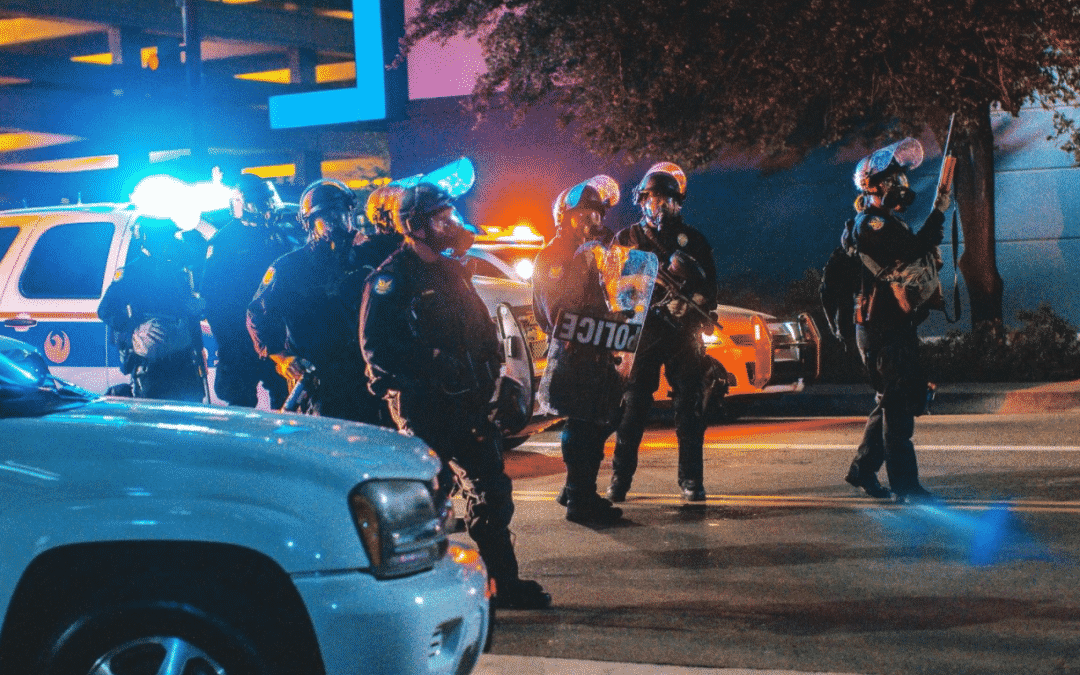This article was last updated: July 12th, 2023
Civil rights violations by police officers happen every day in Philadelphia and throughout the United States. In the last year, there has been significant media attention on police brutality and civil rights violations. Currently, former Minneapolis police officer Derek Chauvin is on trial for George Floyd’s death after he used a knee restraint on his neck and George Floyd died at the scene. If you have been the victim of a false arrest, use of excessive force, or malicious prosecution, you may be entitled to compensation through a civil rights lawsuit.
Section 1983 of the Civil Rights Act
Section 1983 of the Civil Rights Act provides rights to victims of police misconduct. Congress passed this law to stop oppressive conduct by groups such as the Klu Klux Klan and government officials. Section 1983 makes it illegal for anyone acting under the authority of the state to deprive another person of his or her rights under the Constitution or another federal law. The most common civil rights claims brought under this law include:
- False arrest
- Malicious prosecution
- Excessive use of force
- Unreasonable use of force
- False arrest
- Sexual assault by a police officer
False Arrest
False arrest is one type of civil rights violation perpetrated by police officers. Victims of false arrest alleges that a police officer violated their Fourth Amendment right against an unlawful search and seizure. Police officers can arrest Philadelphia residents without a warrant for a felony or misdemeanor that the suspect commits in the police officer’s presence. However, in most cases, police officers must demonstrate that they had probable cause to believe the suspect committed a crime in order to make an arrest.
Officers often find out that the suspect did not commit a crime after they arrest them. Even when the information upon which the officer made the arrest is false, if the officer believes the information was accurate at the time of the arrest, then they are free from liability for a false arrest. As the victim of a false arrest, you and your lawyer must prove that the officer who arrested you lacked probable cause. Specifically, you will need to prove that the officer did not have facts sufficient to cause a reasonable person to believe that you committed a crime.
Excessive Use of Force
Unfortunately, excessive use of force claims against police officers are far too common in Philadelphia. Excessive use of force claims garner publicity because they are often outrageous or involve serious injuries or death. These types of claims often involved sexual assault by a police officer, police brutality, or unjustified police shooting against a suspect. Whether the amount of force an officer uses is reasonable depends on the case’s facts and circumstances.
Courts will not look to the police officer’s motivations or intentions. They will focus on whether the police officer used a reasonable amount of force. Even if an officer had good intentions but used unjustifiable and unreasonable force against the victim, the victim can win a case against that police officer.
No Use of Verbal Commands
There are many different examples of excessive use of force. In some instances, police officers will not use any verbal commands on a suspect. Police officers should start with using verbal commands before they resort to using physical force against a suspect. When officers forget or purposely choose not to use verbal communication with a suspect but instead choose to become physical, the victim may have a valid claim of police brutality. Suppose a police officer does not yell at a suspect to put down a weapon before shooting the suspect. In that case, the victim may have a valid case against the police officer for excessive use of force.
Causing Unnecessary Injury
Additionally, when police officers do not need to use physical force and choose to do so anyway, they could be liable for civil rights violations. There are many different ways to deescalate a situation with the suspect without using physical violence and causing unnecessary injury. The officer should try to restrain the suspect without striking him or her or injuring him or her unnecessarily. For example, if a suspect slaps a police officer, the police officer should restrain the suspect, not use a weapon against him or her.
Hurting Restrained Suspects
When suspects are restrained, police officers typically do not need to use physical force or violence against them. Unfortunately, there are many cases in which a suspect was struck or injured even though they were no longer resisting and pose no threat of danger to the police officer.
Malicious Prosecution
Malicious prosecution occurs when a police officer has a vendetta against a suspect or wants to punish a suspect by prosecuting him or her. Malicious prosecution is illegal in the United States because it deprives the victim of his or her Fourth Amendment right to liberty. As such, malicious prosecutions are another type of civil rights violation. Victims of malicious prosecution must prove four elements:
- The police officer commenced a criminal proceeding against the victim
- The proceeding came out in the victim’s favor
- There was no probable cause to arrest the victim
- The police officer brought the proceeding against the victim with malice
When the police officer can prove that he or she had probable cause to initiate criminal proceedings against the suspect, the victim will not win a malicious prosecution claim.
Contact a Philadelphia Civil Rights Lawyer Today
The Philadelphia police department has a long history of violating residents’ civil rights through police brutality and the use of excessive force. Knowing your rights is an essential part of protecting yourself. If you have been the victim of police brutality, false arrest, or malicious prosecution, you only have a limited amount of time to bring your lawsuit. We recommend discussing your case with an experienced civil rights lawyer. Contact Abramson & Denenberg, P.C., today to schedule your free initial consultation to learn how we will fight for your right to compensation and the justice you deserve.

